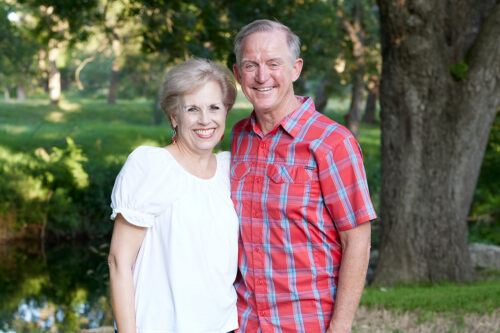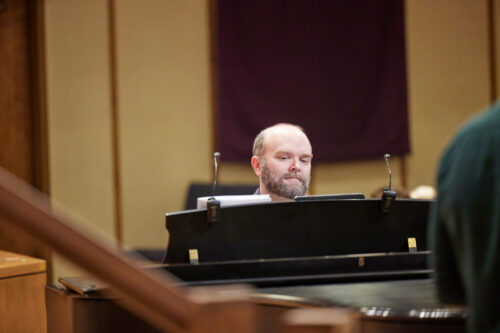Tish Harrison Warren was at Covenant Wednesday, Oct.5, as part of our Faith and Lecture Series. Warren, a priest in the Anglican Church in North America who serves at Resurrection South Austin, talked about vocation as our mission.
She said that after the Reformation, the ?earthy notion of vocation,? more than the scholastic wrangling of justice, captured the imagination of Europe and the hearts of lay people. ?It was a new concept that a farmer could teach the story of God in the field as much as a monk could teach in the church. This was a revolution. It toppled the hierarchies where monks and priests were on the top and everyone else was below. This was world-shaking that we could worship God through secular vocations.?
Tish said that ?liturgy? literally means the work of the people. She explained: ?When we say, ?Go forth and love and serve the Lord,? we are sent out to do the work we?ve been given to do. We are sent into our specific vocations, our homes, and the places we work each week. We are sent out by God.?
Vocational Hierarchy
Harrison works with Intervarsity Women and as such, spends a lot of time with college students. ?Graduate students have their own hierarchy,? she said. ?They think if they are not doing something directly impacting the poor, their work is somehow less meaningful. Being a scholar is somehow less important to God than being a social worker. ?
Warren said that if she is challenged to create her own hierarchy, she?d put poets and musicians on the top. ?Maybe you have your own science of a hierarchy of vocational righteousness?? she said. ?Are there parts of vocation that you think are more important than others? Are their parts of your own vocation that you think are more holy? Are there spheres of society that you think are more redeemable or less redeemable. Are there spheres we think God is less involved in than others?
Formed by Routines
Warren said that discipleship in our work lives is born of practices. ?The things we do do things to us,? she said. ?Whatever we profess about our theology of work, our worship is more formed by our lives. Our lives are formed by our routines.
She used herself as an example, explaining that she hated to make her bed and never did it. And then, during Lent, she started making her bed. Now instead of waking up, checking her phone and getting inundated with infotainment, she makes her bed and then sits on it for three- five minutes in silence. ?My first move of the day is to bring order to chaos. That small moment imprinted the rest of the day.?
Every time I picked up the phone, it was a liturgy. I trained myself to do it?and made it a routine. Every spare moment of my day, I filled with entertainment and information. Making a small change in my liturgy led me to look for moments in the day when I could look for stillness. I could look for how it shaped me.
Warren suggested examining the mundane rituals of our daily work and the way it shapes us. She said a close friend is in charge a big organization and he could tell you all the things he does at work, but if asked, his kid would say, ?Daddy goes to meetings and checks email.?
?These mundane things make our work life,? Warren said.
Warren recently met with leaders of a congregation where the members were very plugged into radio talk shows ? folks who were listening to hours a day of conservative radio. ?If every day on your way home from work, you listen to conservative radio, it will shape you and form you.?
Warren said that her goal is to approach work more holistically. ?Our work, our office; being a mom, a teacher; this is all part of God?s redemption of all the earth. It?s part of Jesus making all things new. Vocation is integral to the mission of God, to Jesus redeeming all things. Our work is not a necessary pragmatic thing to get to the real work of kingdom building. It is sacred. It is part of God?s redemption. It is part of God?s holy purpose for humanity. What you do in your office, at school, or while folding laundry reflects God. We show forth what it is to be his image bearers.?
Warren said the routines of our work need to be shaped by the routines of worship, and that begins on Sunday. ?The worship you do transforms your work. The liturgy transforms us to be different kinds of people. We bring those work practices back on Sunday and they inform our worship. There is an integrated relationship between prayer and work.?
Warren?s first book, “Liturgy of the Ordinary: Sacred Practices in Everyday Life,” will be released in December. Find her at tishharrisonwarren.com?or on twitter @Tish_H_Warren.



